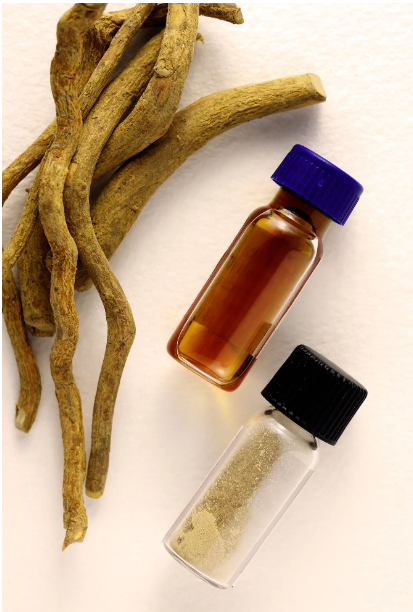Texas Will Invest $50 Million in Ibogaine Research, Testing the Psychedelic Drug’s Medical Potential
The state’s new law marks one of the largest government investments into psychedelics to date, with advocates citing the drug’s potential to help veterans with traumatic brain injury and PTSD
Amber X. Chen – AAAS Mass Media Fellow
June 18, 2025
Last week, Texas Governor Greg Abbott signed into law a new bill that will invest $50 million into research on ibogaine, a drug that has shown promise for treating neurological conditions and opioid addiction. The bill, which received bipartisan support, marks one of the largest government investments in psychedelic medicine thus far.
“Texas will now lead the way in America for the evaluation of ibogaine as a potential medication that can help improve the lives of so many veterans,” Abbott says in a statement.
Ibogaine is the psychedelic compound derived from the iboga shrub, which is native to central Africa. Although people in other countries have been using ibogaine for medicinal and spiritual purposes for centuries, the United States still classifies it as a Schedule I drug, defined by the Drug Enforcement Administration as a substance with “high potential for abuse… with no currently accepted medical use.” Other psychedelics, such as psilocybin and MDMA, also have this designation.
Historically, this has made research into the medical and therapeutic potential of these drugs difficult to pursue. In the last decade, however, psychedelics have begun to gain acceptance in scientific communities and secure bipartisan political support, with some of their most outspoken allies being conservative lawmakers, such as former Texas governor Rick Perry. The state’s historic investment in ibogaine is the latest advance in a wave of new psychedelic research funding.
Proponents are specifically interested in ibogaine’s potential to treat traumatic brain injury (TBI), one of the leading causes of post traumatic stress disorder (PTSD). TBIs are caused by a sudden blow or jolt to the head and are associated with suicidal ideation and major depressive disorder. In addition to treating TBI, ibogaine has been studied as a potential treatment for cocaine and opioid addiction.
The new law will support Texas-based trials of ibogaine through the Food and Drug Administration (FDA), with the intent to seek the agency’s approval of the drug. Obtaining that approval, however, could take years.
The law also initiates a public-private partnership, in which private investments would match state funding for research. The bill ensures that the state would receive at least 20 percent of the revenue generated from the drug if it is approved by the FDA, and a quarter of that money would go to a fund for Texas veterans, reports Stephen Simpson for the Texas Tribune.
Antidepressants and anti-anxiety medications are commonly prescribed to treat PTSD, but these only target its symptoms, not underlying TBI. Ibogaine, on the other hand, is suggested to be able to directly target TBI through promoting neuroplasticity, or the brain’s ability to change through forming new cell connections. Still, more studies must be done before scientists can be sure how the compound is able to accomplish this.
“I’m deliriously happy, especially for patients,” Deborah Mash, a neurologist at the University of Miami who studied ibogaine in the 1990s, tells the New York Times’ Andrew Jacobs. “I’ve seen with my own eyes how it can change people’s lives.”
A 2024 study in Nature Medicine, for instance, brought to light ibogaine’s potential as a promising TBI treatment. The study, which took place in Mexico due to the compound’s Schedule I status in the U.S., found that ibogaine treatment seemed to reduce symptoms of TBI in 30 male combat veterans. The participants reported an average reduction of 88 percent in PTSD symptoms one month after a single ibogaine treatment. Despite its promise, the study’s results were limited by its small sample size, lack of participant diversity and lack of a placebo group.
A caveat of ibogaine-based treatment is that the compound has known cardiac health risks, but doctors emphasize that these risks can be mitigated through cardiac monitoring and combining treatment with magnesium, per the New York Times.
Bryan Hubbard, executive director of the American Ibogaine Initiative, tells the Texas Tribune that it would take at least six years for the state to see any progress on FDA-approved clinical trials. But “if Texas can create a treatment plan for ibogaine, it might be the most significant achievement in modern medicine for nearly a century,” he adds.
Others are not as optimistic. As Andrew Kruegel, chief scientific officer of Gilgamesh Pharmaceuticals, which is currently working on therapies with an ibogaine analogue, tells the New York Times, “this is obviously a huge step in the right direction, but I worry about too much hype. People want a miracle, because we need a miracle to solve some of these drug addiction issues we’re facing in this country, but it’s going to take a lot of time and money, and I just don’t want us to get ahead of ourselves.”
You Might Also Like
A Lesser-Known Psychedelic Drug Shows Promise for PTSD Treatment
January 9, 2024
MDMA Treatment for PTSD Fails to Secure Federal Approval
August 13, 2024
Psychedelic ‘Magic Mushroom’ Ingredient Could Help Treat Alcohol Addiction
August 26, 2022
Adults Can Now Use Magic Mushrooms With Supervision in Oregon
January 4, 2023
Why Psychedelic Drugs May Become a Key Treatment for PTSD and Depression
May 3, 2022
